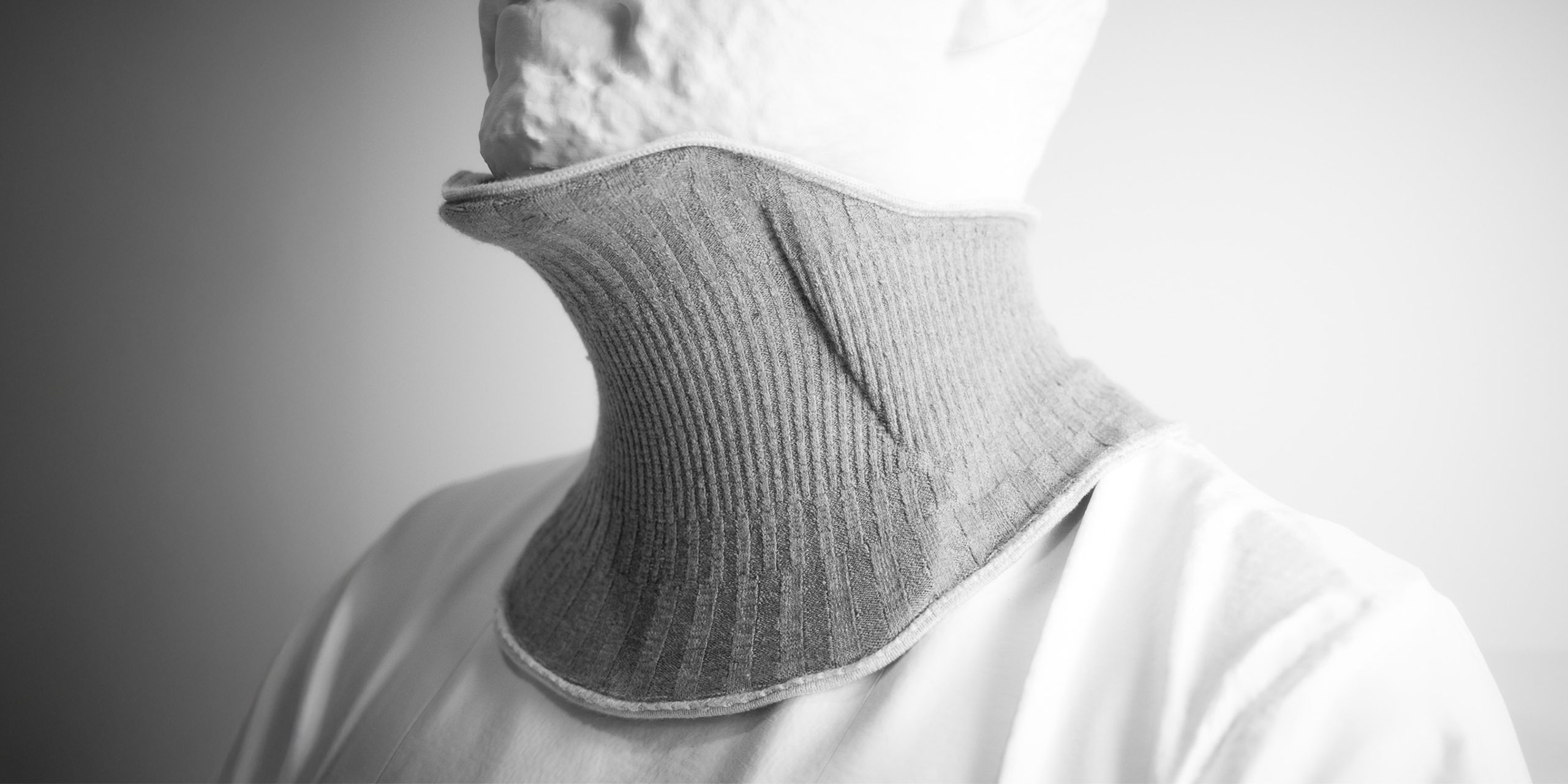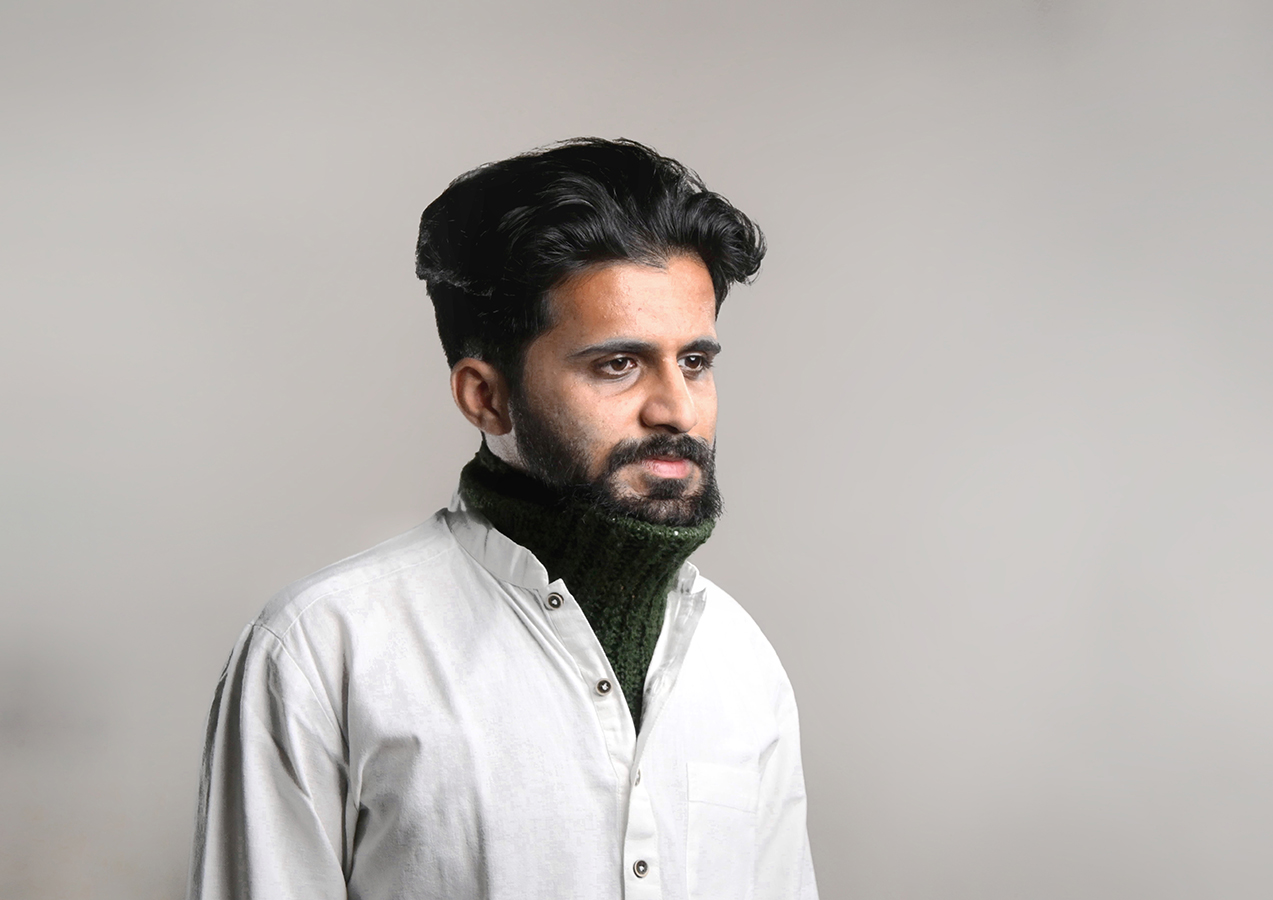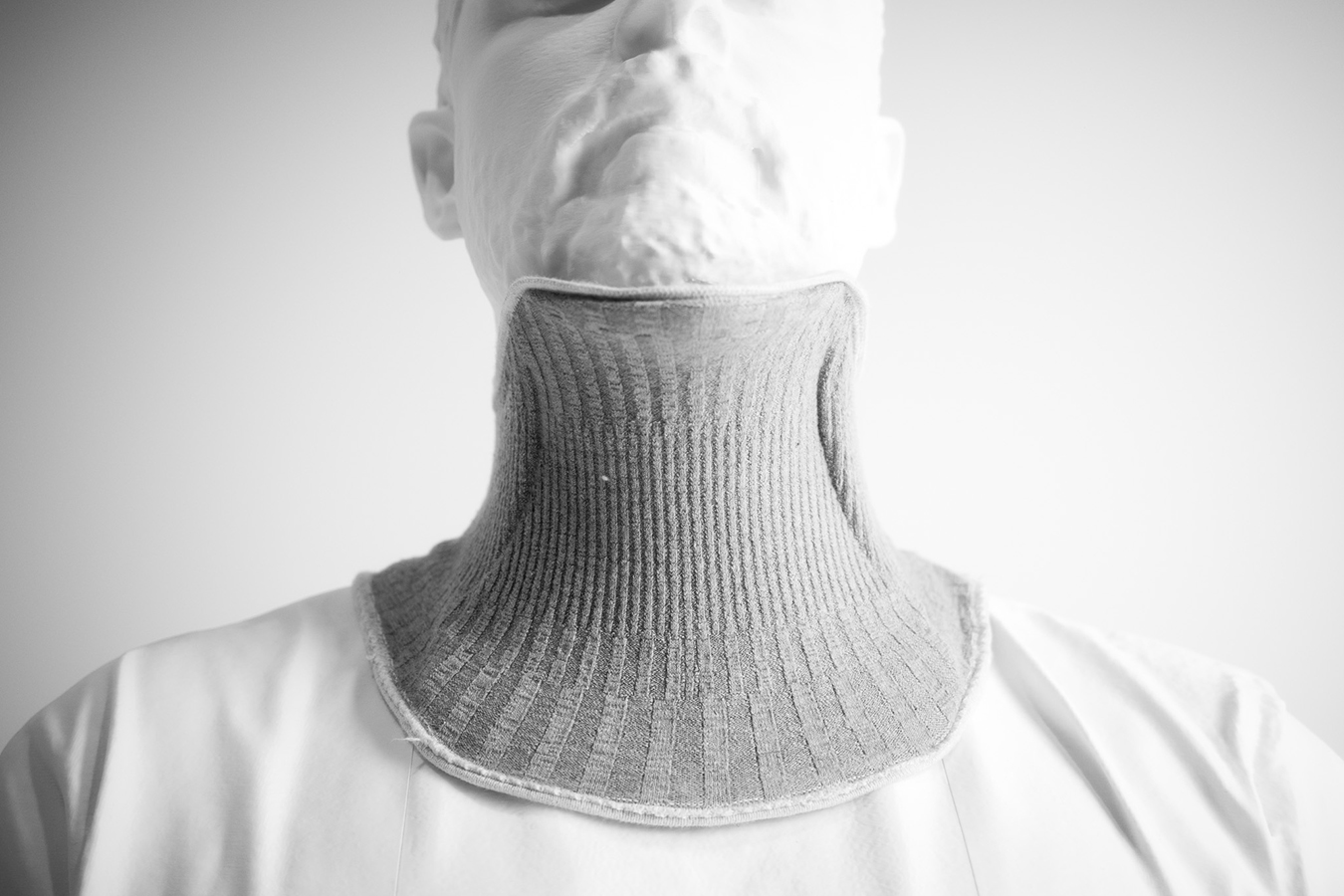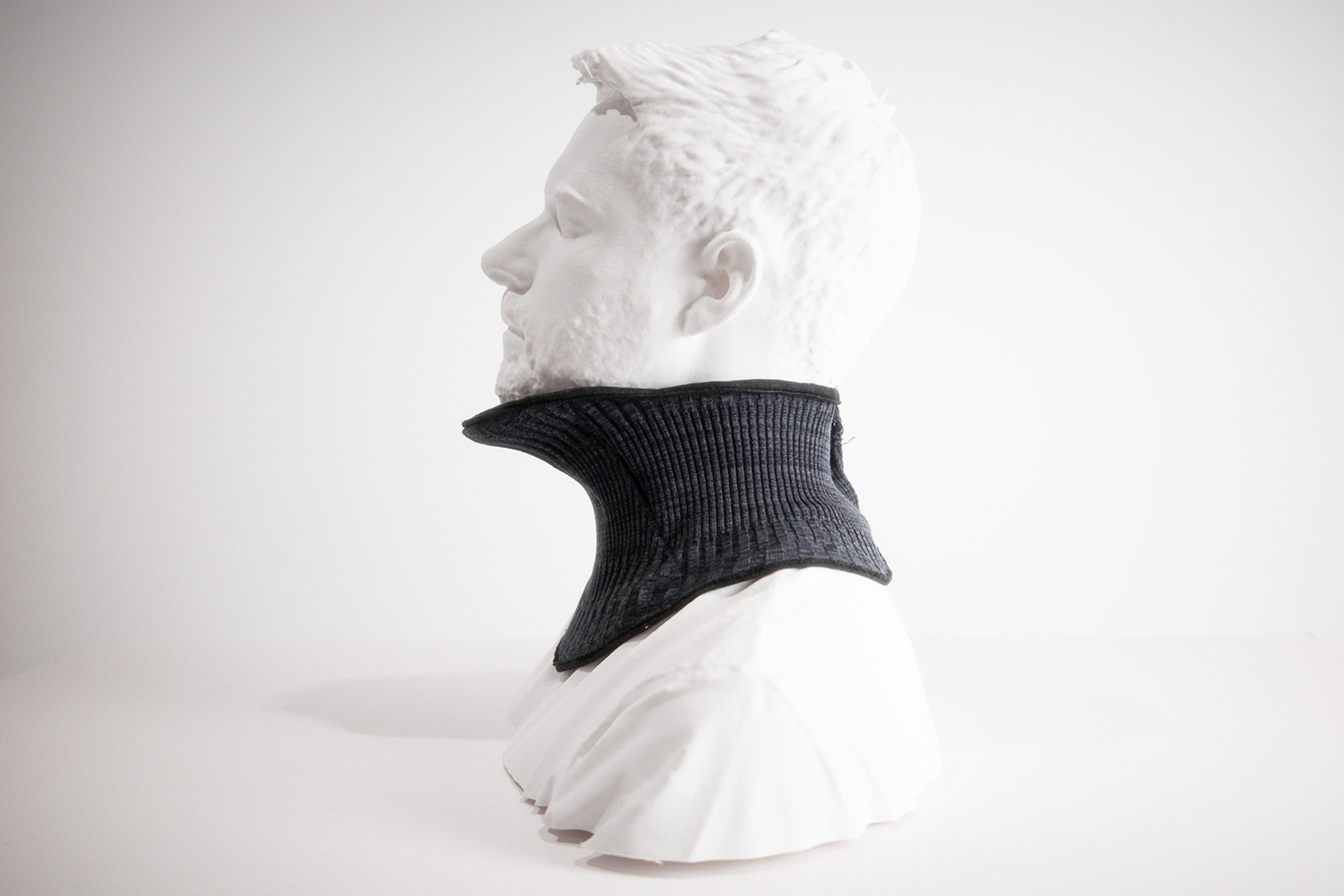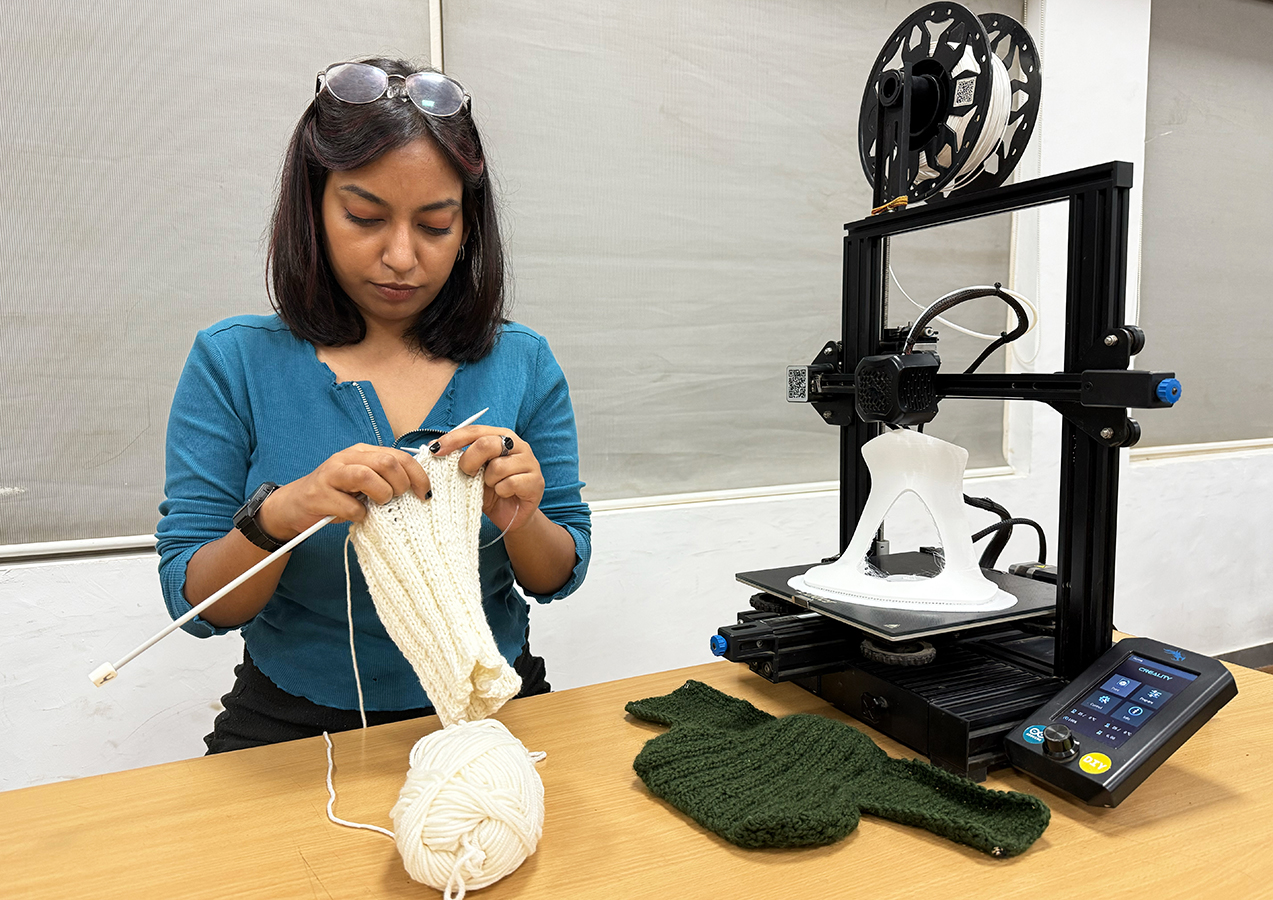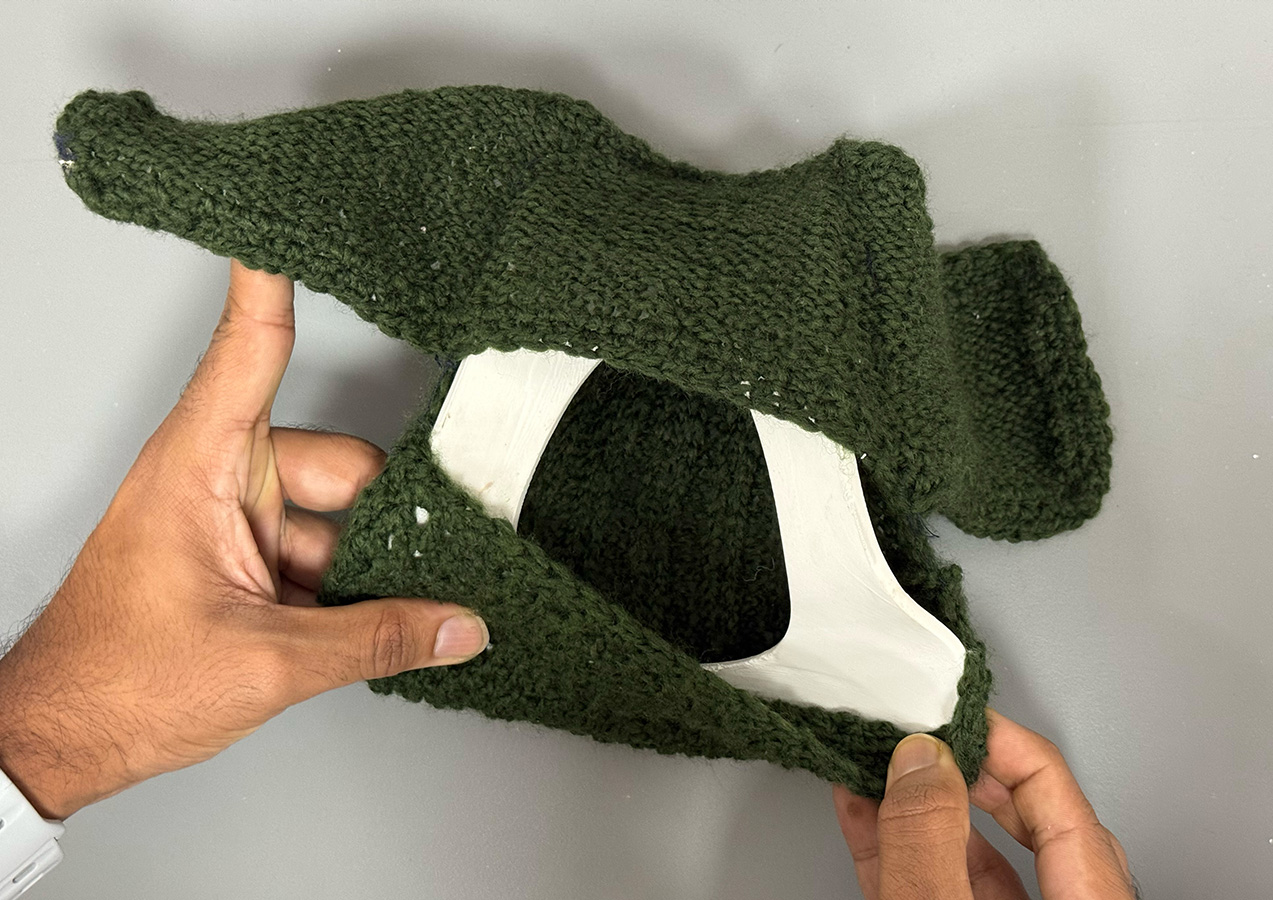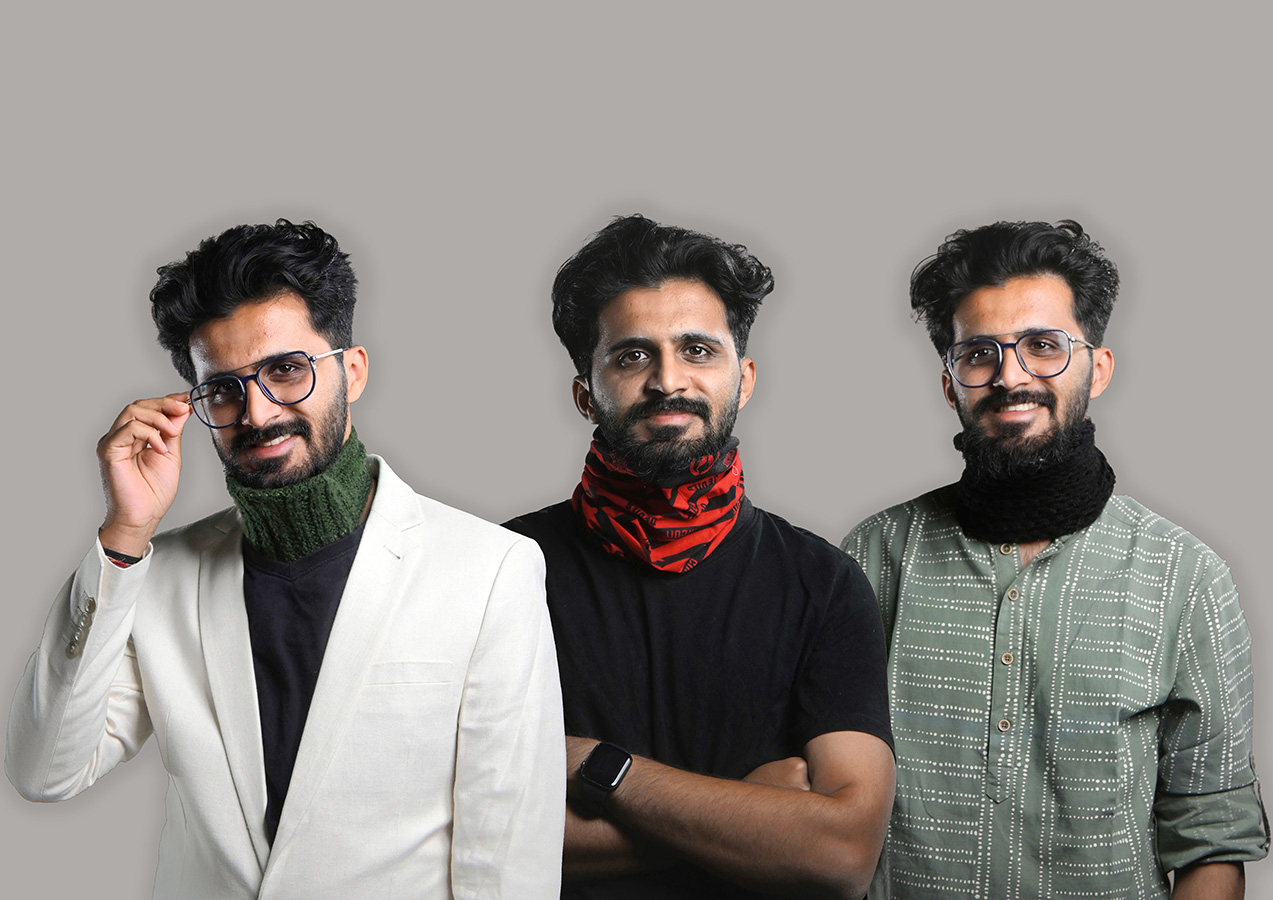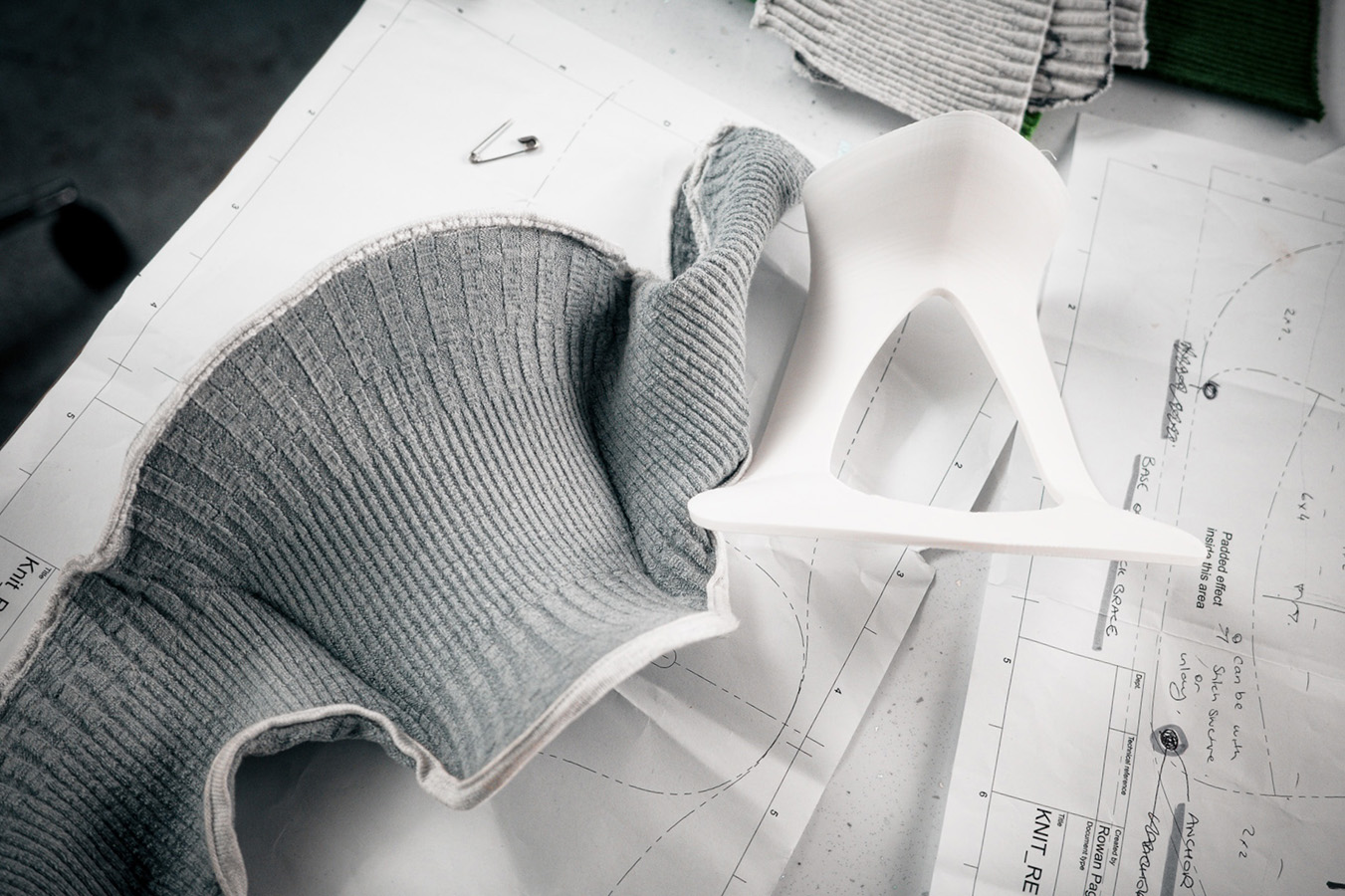The project followed a human-centred and participatory design process, rooted in cross-cultural fieldwork and iterative prototyping. Initial insights were gathered through semi-structured interviews and contextual observations with clinicians, caregivers, and people with ALS in Calvary Care Bethlehem, Victoria. Multiple prototyping cycles were conducted at Monash University’s Design Health Collab using digital fabrication (parametric 3D modelling and FDM printing) and textile-making methods (WHOLEGARMENT knitting at Knovus, Melbourne and hand-stitched alternatives). Clinicians provided hands-on feedback through prototype annotation, and modifications were implemented collaboratively. The device comprises two modular components: a 3D-printed structural insert and a fabric-based collar.
The insert provides tailored support for each user’s head-drop severity and can be reprinted as symptoms evolve. The collar can be hand-sewn, machine-knit, or upcycled from breathable fabrics using a common template. A ‘kangaroo pouch’ mechanism allows the insert to be easily swaped as needs progress, and for cleaning. The final prototype was reviewed and refined in collaboration with clinical partners at Monash Health and is aligned with ALS care guidelines. Throughout the process, attention was given to aesthetics, emotional comfort, hygiene, and ease of use. The system was designed to support both formal clinical distribution and DIY/community-led production. This dual-path approach ensures it is feasible in diverse contexts without compromising on professional integrity or quality.

